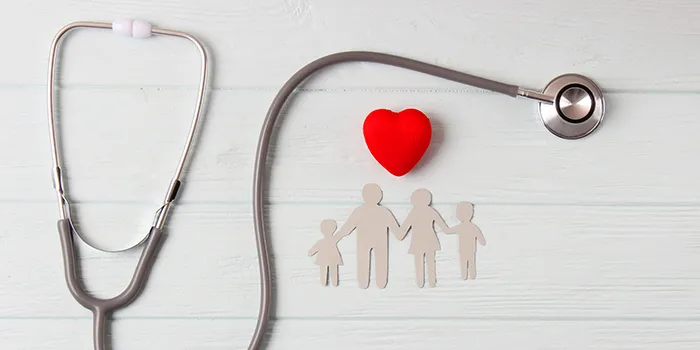If you or someone you love has been diagnosed with hemophilia, von Willebrand disease or another type of bleeding disorder, you’ve probably heard about hemophilia treatment centers (HTCs).
HTCs were created because people with bleeding disorders, their families and healthcare professionals literally demanded them. In 1973, the National Hemophilia Foundation (NHF) launched a two-year campaign to establish a nationwide network of centers to diagnose and treat hemophilia and other bleeding disorders. The goal was to provide an extensive range of coordinated services for patients and families within a single facility.
Today, there are approximately 141 HTCs across the country, which are partially funded by the Centers for Disease Control and Prevention (CDC) and other federal agencies. Although they are called hemophilia treatment centers, HTCs provide care for people with von Willebrand disease and other bleeding disorders.
Depending on where you live, you might have to travel several hours to receive care at an HTC. If that’s the case, it’s still a good idea to establish care at one of these centers, even if you aren’t able to visit the HTC more than once or twice a year.
Here are four reasons why establishing care at an HTC is so important:
1. Comprehensive Care
Comprehensive care treats the whole person and the family, through continuous supervision of all the medical and psychosocial aspects of bleeding disorders. With comprehensive care, every facet of the person is addressed, including their physical, emotional, psychological, educational, financial and vocational needs, not just visits with a blood disorder doctor.
Studies show that this comprehensive care model leads to improved health for people with bleeding disorders. A 2000 CDC study of 3,000 people with hemophilia showed that those who used an HTC were 40% less likely to die of a hemophilia-related complication compared with those who did not receive care at an HTC. Similarly, a separate study by CDC researchers revealed that people who used an HTC were 40% less likely to be hospitalized for bleeding complications.
2. Multidisciplinary Team of Specialists
HTCs provide specialized care from a multidisciplinary team of providers.
Members of the care team at an HTC can include:
- Hematologists: Physicians who specialize in blood disorders.
- Pediatricians: Physicians who specialize in caring for infants, young children and teenagers.
- Nurses: Medical specialists in bleeding disorders care.
- Social Workers: Specialists who assist you with the issues of daily living, such as adjusting to living with a bleeding disorders, and locating resources (e.g., insurance, transportation, housing).
- Child Life Specialists: Specialists who focus on the developmental needs of children, and help children cope through education, preparation and play.
- Physical Therapists: Specialists in activity, exercise and rehabilitation.
- Occupational Therapists: Specialists in managing everyday tasks with any limitations resulting from bleeding disorders.
- Orthopedists: Physicians who specialize in disorders of the bones and joints.
- Dentists: Specialists in disorders of the teeth and gums. The dentists at HTCs are experts in treating children with oral bleeding problems.
The HTC team can also consult with a patient’s regular primary care physician, dentist or specialist. HTCs can educate and support health care providers who perform cardiac testing, colonoscopies or other services in adults.
3. Emphasis on Education
In addition to treatment, one of the major goals of an HTC is education. For example, when a child begins prophylaxis treatment, HTCs teach parents and caregivers, and, eventually, the children, how to infuse themselves so they can treat at home. Infusing at home can save time, reduce discomfort and increase convenience during a bleed, because patients don’t have to travel to an emergency room and wait.
HTCs educate others, as well. HTC staff members often visit schools so that they can help educate teachers, administrators and school nurses learn what hemophilia is, what activities are safe for children to participate in, and how to recognize an emergency.
4. Access to New and Improved Treatments
HTCs gather and share information about common health issues and medical complications that affect people with bleeding disorders, with the goal of advancing care and improving outcomes. Patients who receive care at HTCs also have access to a variety of studies and clinical trials, which gives them access to new treatments that may not yet be widely available.
However, involvement in research initiatives is completely voluntary, and is not a requirement for being treated at an HTC.

